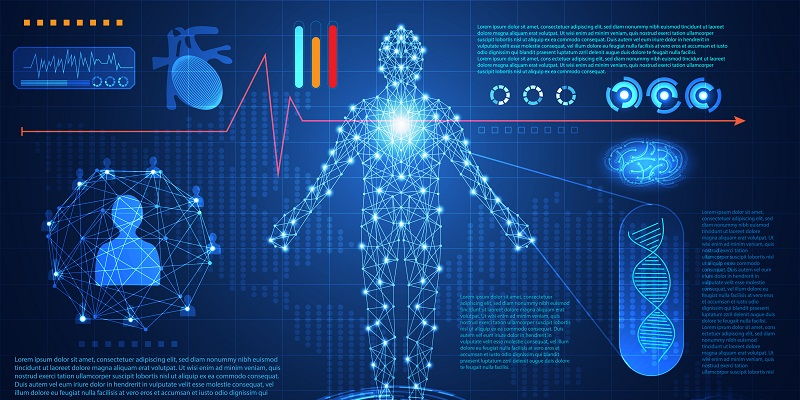The use of artificial intelligence (AI) and machine learning (ML) in healthcare is transforming the way we diagnose, treat, and prevent diseases. With the ability to analyze vast amounts of medical data quickly and accurately, AI has the potential to revolutionize healthcare by enabling more accurate diagnoses, personalized treatments, improved patient outcomes, and reduced costs.
Diagnostics: AI algorithms for early detection of diseases
One of the most significant advantages of using AI in healthcare is its ability to perform early disease detection. By analyzing large amounts of medical data, AI algorithms can quickly identify early-stage symptoms and patterns that human physicians may miss. For example, AI algorithms can analyze medical history and imaging data to detect early-stage tumors and heart diseases with an accuracy rate higher than traditional methods.
Personalized treatments: Customizing treatments based on individual patient data
The use of AI can also help tailor treatments based on individual patient data. By analyzing patients’ medical history, genetic makeup, environmental factors, and other personalized data, AI algorithms can help identify optimal treatments that suit individual patient needs. For example, personalized treatment of cancer patients has been made possible through the use of AI, which allows oncologists to determine which treatment regimens are most likely to be successful based on the individual patient’s genetics and health history.
Medical imaging: Using AI to detect abnormalities in medical images
AI algorithms can analyze medical images such as X-rays, CT scans, and MRIs to detect abnormalities that may be missed by human radiologists. The use of AI in medical imaging has already shown excellent results in detecting tumors, aneurysms, and other potentially life-threatening abnormalities that require prompt attention. The technology can also be used to monitor patient progress and adjust treatment plans accordingly.
Drug Development: AI for Identifying New Drug Targets and Accelerating Development
AI can help identify new drug targets and speed up the drug development process, which traditionally takes years or even decades. By leveraging large data sets, AI can predict which drug compounds are most likely to be effective and identify potential side effects. Furthermore, AI can help develop precision medicine, which targets treatments to specific subsets of patients based on their unique biology.
Remote Monitoring: AI for analyzing wearable device data and detecting changes in patient condition
The use of AI in remote monitoring has become increasingly popular, particularly in the wake of the COVID-19 pandemic and the rise of telemedicine. AI algorithms can analyze data obtained from wearable devices such as smartwatches and other sensors to detect changes in a patient’s condition, identifying potential health issues before they become serious.
Real-time insights: AI for identifying potential health issues before they become serious
The use of AI can provide real-time insights into a patient’s health status, allowing healthcare providers to identify potential health issues before they become serious. By monitoring a patient’s vital signs, medications, and other relevant data, AI can alert healthcare providers to changes that may require immediate attention, such as a sudden drop in blood pressure or a spike in blood sugar levels.
Telehealth: Using AI for remote patient monitoring through telehealth platforms
Telehealth has become increasingly popular during the pandemic, enabling doctors to treat patients remotely. AI in telehealth allows providers to monitor patients through remote devices and telehealth platforms, which makes it possible to detect changes in a patient’s condition early on, without requiring in-person visits. This approach ensures that patients receive timely care, even when they are unable to leave their homes.
Disease prevention: AI for analyzing patient data and identifying risk factors to intervene early
AI can help healthcare providers analyze patient data, such as genetics, lifestyle factors, medical history, and other information, to identify risk factors and intervene early. By identifying warning signs, such as pre-diabetic conditions or genetic predispositions to certain diseases, healthcare providers can work with patients to adopt lifestyle changes that will help prevent the onset of disease.
Overall, AI and machine learning have enormous potential to transform healthcare by improving patient outcomes, reducing costs, and enhancing the efficiency of healthcare systems. The application of AI and ML in disease diagnosis, personalized treatment, medical imaging, drug development, remote monitoring, and telehealth highlights how these emerging technologies are changing the face of healthcare in unprecedented ways. The benefits of AI in healthcare cannot be overstated and will continue to disrupt traditional care models, making it possible to deliver proactive, personalized, and effective care.

